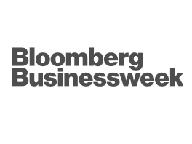Faculty News
—
Senior Research Scholar Shlomo Angel discusses the Urbanization Project's research on the growth of 120 cities
—

Excerpt from Fast Co.Exist -- "'What we've been able to show is that there's been unbelievable expansion,' says Shlomo 'Solly' Angel, a senior researcher at the NYU Stern Urbanization Project. 'This gives planners and policymakers an idea of by how much cities are going to grow. In sub-Saharan Africa, for example, cities are going to grow seven or eight times between now and 2040.'"
Faculty News
—

Excerpt from Fast Co.Exist -- "'What we've been able to show is that there's been unbelievable expansion,' says Shlomo 'Solly' Angel, a senior researcher at the NYU Stern Urbanization Project. 'This gives planners and policymakers an idea of by how much cities are going to grow. In sub-Saharan Africa, for example, cities are going to grow seven or eight times between now and 2040.'"

















